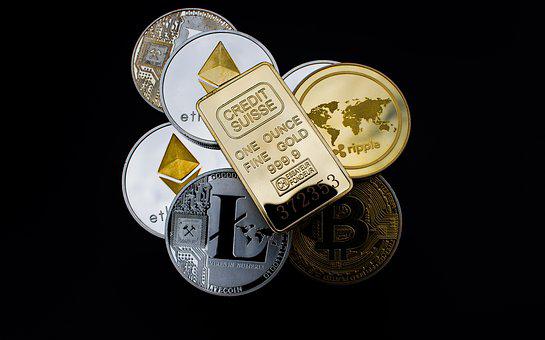The Libertarian Party of Georgia recently passed a resolution in opposition to regulation on Bitcoin and cryptographic property. Due to a recent paper released by the Federal Reserve exploring a Central Bank Digital Currency (CBDC) and a recent Executive Order released by the Biden Administration directing the Secretary of the Treasury to research CBDCs, the Executive Committee of the Libertarian Party of Georgia has stated its position and forcefully condemned any action towards the creation of a CBDC.
What is a Central Bank Digital Currency and Why Do They Matter?
Why would we stand against a digital currency? Aren’t our dollars basically digital already? Why do we feel a need to stand against something that we already use? What’s a Central Bank Digital Currency anyway, and who cares? While much of the conversation around CBDCs can be confusing and some of these questions are probably on your mind already, this topic is of the utmost importance when it comes to your privacy and liberty.
So what is a Central Bank Digital Currency? According to the Federal Reserve, a CBDC “is generally defined as a digital liability of a central bank that is widely available to the general public”. This is a very generic definition, but there is much more to the story. The dollars you carry around in your wallet or the digits you see on your banking app are already a liability of the central bank of the United States, which is commonly known as the Federal Reserve System. You’ll notice that at the top of any dollar bill the term “Federal Reserve Note” is prominently displayed. The debt-based currency we use already seems to be a “Central Bank Digital Currency”, but there must be a difference if the president, the Federal Reserve, and the Secretary of the Treasury are investigating the possibility of a CBDC. So what’s the difference?
The difference between a Central Bank Digital Currency and the dollar as it currently exists is that the Federal Reserve would become the centralized payment processor for the new currency. Any payment you made or received would be processed through the Federal Reserve, giving them access to monitor, trace, or even block any transaction across the entire economy. Under the guise of “accessibility” for “unbanked and underbanked” individuals, the United States government would work in tandem with the Federal Reserve to further transgress the constitution and surveil the citizens of this country.
A CBDC circumvents all the friction that the government has in requesting documentation from banks regarding your personal and private transactions. Consider how Bank of America turned over private transaction information to the government after January 6th, 2021, sweeping up people who were in no way connected to the event in the process. Now consider how much faster the government could round up any political enemy or innocent bystander if they had all of that transaction information in their own databases. Who needs the protection of the Fourth Amendment anyway? Nothing to hide, nothing to fear, right? Be careful what you wish for, dear voter. Political dissidents are always a target for the regime, and imagine the impact on your right to free speech if you know that the government has the ability to cut off your access to credit, payment processing, or even necessities such as food and water with a simple flip of a switch in the centralized payment system.
Our Current System
Regardless of the clear violation of the Fourth Amendment that would be brought about by the existence of Central Bank Digital Currencies, we must remember that the United States Government has already violated Article I, Section 8, Clause 5 of the constitution by using the Federal Reserve, a private entity, to create a debt-based fiat currency called the dollar. We don’t just stand against the new currency because of the Fourth Amendment, though that is truly a frightening possibility. We stand against the currency of the United States and the monetary system as it exists today. The Federal Reserve creates Federal Reserve notes, “IOU Nothings” if you will, and it has no limitation on currency creation. The US Treasury creates a T-Bill and the Federal Reserve gives the Treasury dollars in exchange. The Balance Sheet of the Federal Reserve gets larger, and the bureaucrats in the US government spend the newly created dollars however they deem fit. This money usually goes to favored industries such as military suppliers, corporate farms, and the finance industry, and the money injection creates permanent disruption to the economy.
The Role of Cryptocurrencies
Why is the Libertarian Party so obsessed with Bitcoin, though? Bitcoin is a decentralized currency that isn’t controlled by any central bank or governing authority. As Robert Kiyosaki says, it is “the people’s money”. It can’t be manipulated, counterfeited, or printed into oblivion. There is a set quantity of Bitcoin (21 million) that can’t be increased or decreased, which means that the measuring stick for monetary transactions, if measured in Bitcoin alone, remains the same forever. You can achieve a measure of anonymity with Bitcoin by keeping your wallet address unconnected to your name. All of the problems that exist with the current fiat currency and with forthcoming CBDCs can be fixed with the use and exchange of Bitcoin as the unit of account for transactions among free people. This is why Bitcoin is so important. This is why the Libertarian Party has so many die-hard enthusiasts. The money problems we have today are almost completely solved by a stable currency with anonymity and no central control. Free the money, free the people.

